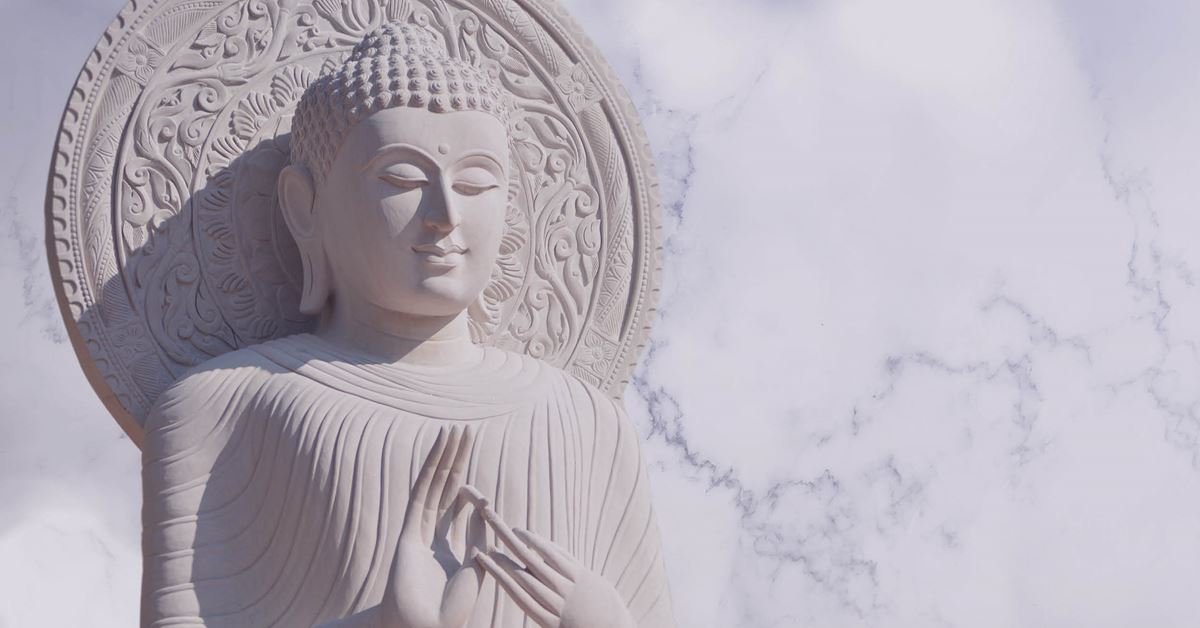
The Buddhist Funeral Ritual
Published on July 15, 2021
- Funeral complex
The practice of Buddhism has definitely become more popular in the Western world in recent years. According to Statistics Canada's 2011 National Household Survey, approximately 367,000 people in Canada declared themselves to be Buddhists, including over 52,000 in Québec, compared to 41,000 in 2001. In order to adapt to this reality, the Æterna Funeral Complex offers a personalized service that provides for the inclusion of Buddhist funeral rites in any farewell ceremony. Here is an overview of this thousand-year-old practice…
The origin of Buddhism
Buddhism originated in India about 500 years before our era with Prince Siddhartha Gautama, making it one of the oldest religions still practised today. Its teachings were then passed on throughout Asia. In Canada, the first Buddhists were Japanese and Chinese labourers who came to work on the railroads and in the mines in the 1800s.
The foundations of Buddhism
Buddhism is based on the principle of reincarnation, which means that upon physical death, the soul of the deceased person leaves the body and enters a new one. Depending on the person's karma, i.e. all of his or her actions in his or her previous life, reincarnation can be positive and allow the soul to return in the form of a human or divine force, or it can be negative, which leads to reincarnation in the form of an animal or a dark force.
Reincarnation takes place in three stages: the last breath, where the deceased person embraces the light or loses consciousness; the choice between various deities that will influence the reincarnation; and the judgment of past actions, followed by the reintegration of the new body.
The rites surrounding death
Since the body is considered only a shell, death is therefore perceived as a liberation of the soul and an extinction of pain, which is called nirvana. Buddhist funeral rites therefore aim to facilitate the process of passing from one body to another.
The presence of loved ones is essential during the last moments of the dying person in order to support him or her and to promote calm and serenity, which will facilitate the journey to a new life. Before the person dies, he or she is dressed in white and placed in the Buddha position, lying on his or her right side with the left hand on the left thigh and the right hand under the right cheek. After the last heartbeat, the body is often kept that way for up to three days in order to allow the soul to awaken.
Although most Buddhists choose cremation, like Buddha, others choose embalming and burial. The method of burial is less important, as the soul has already left the body by that time. Organ donation is also common, as sharing is considered an important virtue.
During the ceremony, mantras and prayers are recited, flowers and fruits are offered, and eulogies of hope and serenity are preferred, as reincarnation has already begun. Afterwards, relatives sometimes gather at the temple to pray and meditate in memory of the deceased.
A final farewell in your own style
Regardless of your beliefs or those of the deceased, it is essential to commemorate your loved one according to his or her values and last wishes. The Æterna Funeral Complex adapts to your practices and wishes so that the farewell ceremony is in keeping with your aspirations in every respect. Through our experience in providing personalized assistance, we can help you plan every step of your ritual.